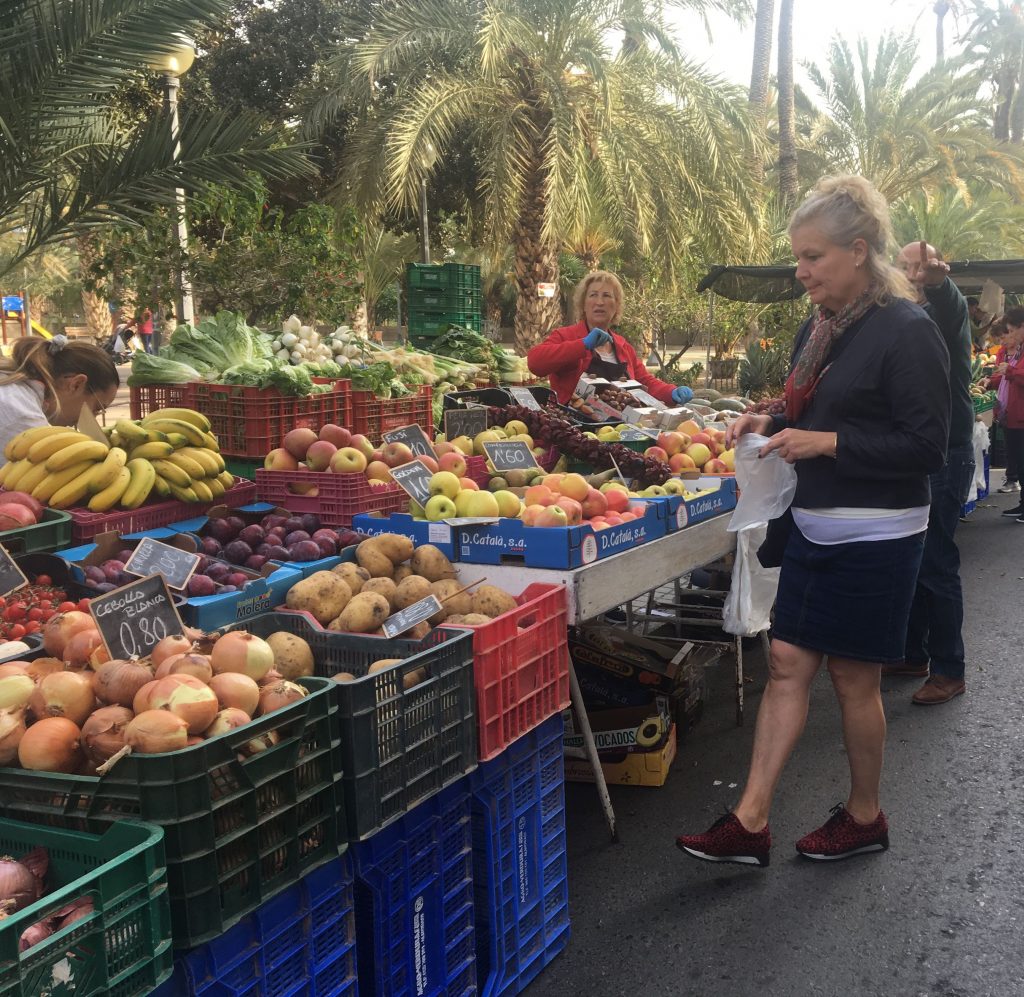
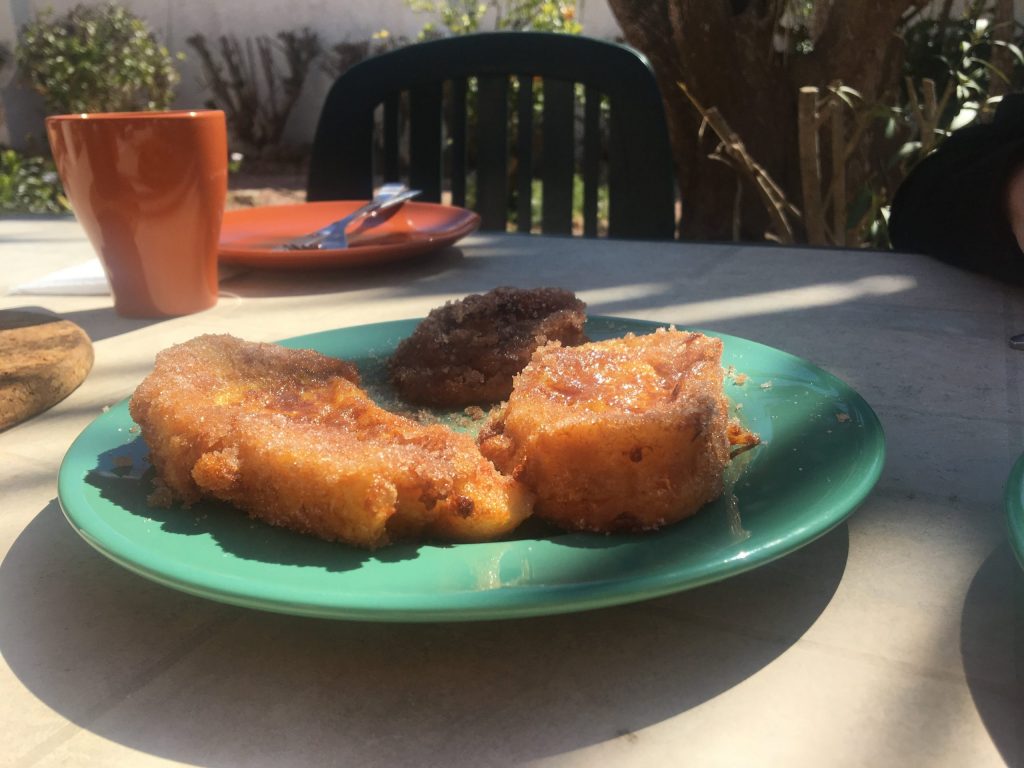
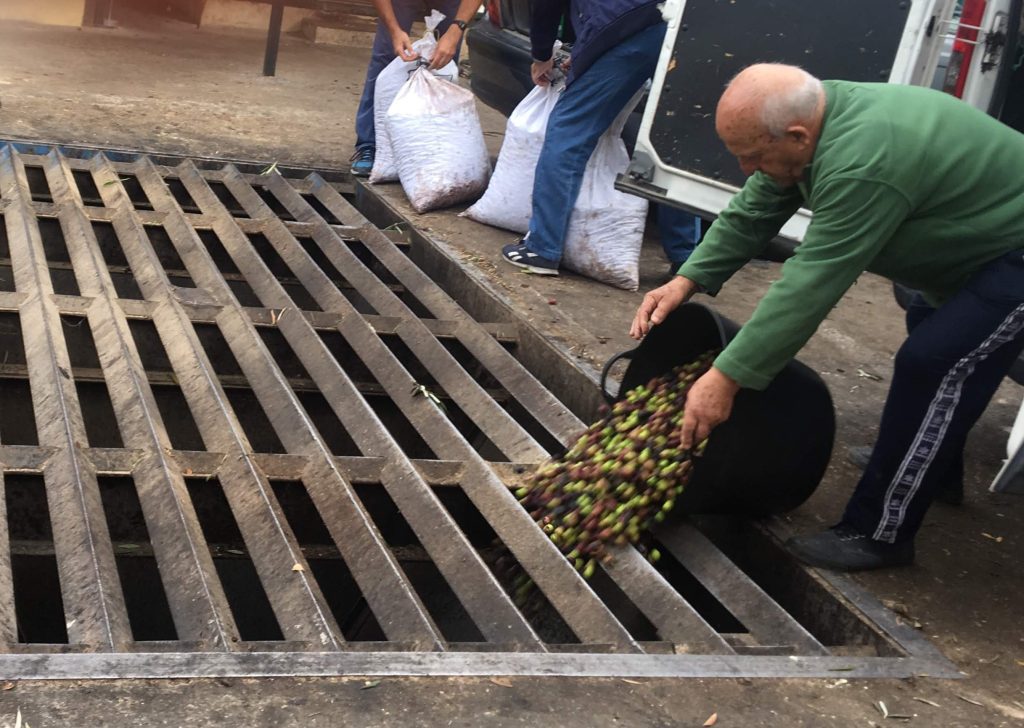
The best culinary vacation Spain to me is a simple one! What is a great Spanish culinary holiday? Is it picking local fruits from orchards, and learn about seasonal fruits and vegetable at the many weekly farmer’s markets in Elche? Perhaps it is about learning how to cook some Spanish home dishes. All the above is something we looked for the we planned for our Bon Food trip. In addition we wanted to relax and have a good time!
Villa Balea is a perfect gateway as it is situated in la Vega Baja. This region is traditionally a agricultural hub in Alicante. Perfectly located near cities like Elche, which has a long tradition for fruits such as dates, pomegranates and olive oil. It is a great place to stay for a unforgettable Spanish culinary holiday for foodies and food lovers. Over the years we tried out restaurants, recommended by locals, to try different tastes.
I call our culinary get-together the Bon Food Trip. I wanted likeminded foodies to explore local culinary traditions together with cultural visits and a relaxing fun holiday. We organize one of a kind culinary experience, from cooking classes to food market tours and everything in between. The beauty fo Spanish food is that they innovate but they take their culinary roots very seriously.
Alicante has historically held a strong position in the green industries, mainly in the production and cultivation of vegetables, fruit and wine. Learn about Spanish gastronomy and Spanish food is a way to understand Spain. Our local contacts allows us to offer an heartfelt Spanish culinary vacation.
Learning, curiosity and the open mindset
It started off as a group of Swedish entrepreneurs and friends from GoNatureTrip network go to Alicante to discover more about Spanish cuisine. Such as, local produce food, local dishes, local farmers´ markets and orchards. We were especially keen on finding out more about the Spanish almond. As it turned out, we ended up learning more about the local production of olive oil. This is where the open mindset comes in, as long as the key is learning, the journey can take us anywhere.
The Bon Food Trip normally takes place in November because that’s when most of us had time during the low season. Even since, we want to create a tradition to do similar culinary trips every year. However, the world went into a standstill due to the pandemic. So, we put our trip on hold for now.
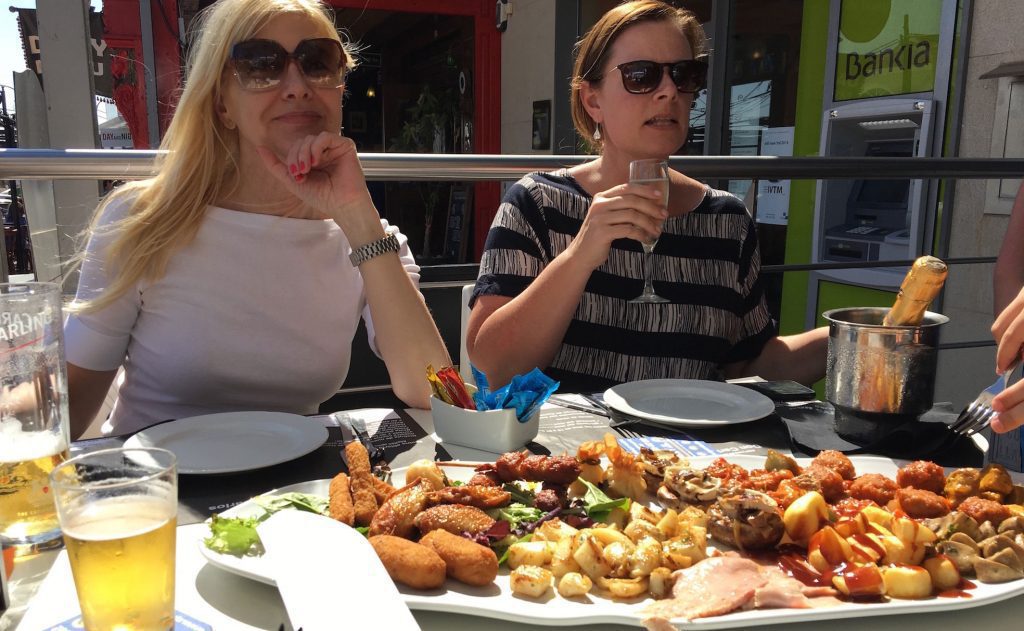
We would stay at Villa Balea and travel around Alicante, Elche and Rojales to taste different foods and experience the local culture. We also have a guide, Gunilla, who takes us on food tourism tours and gives us insights on different exciting dishes.
In addition to this, our ambitions to create some kind of exchange between eco farmers in Alicante and Sweden is probably un-reachable, but lets at least try! We want to try to introduce eco outdoor cooking inspired by one of my good friend and fellow entrepreneur, Malin from Ödevata Countryside hotels (Sweden). Together with her husband they manufacture, at a small scale, Kon-Tiki -inspired grills and outdoor kitchens on which you can produce biochar and cook at the same time.
Villa Balea and GoNatureTrip organized the first “Food in Spanish” or Bon Food Trip in November 2018 and we would like to share with you some of the places we discovered. This foodie trip offer not only great clean eating, but also a way to explore the local food culture and agricultural innovation. La Comunidad Valenciana is a great choice if you want to go on Bon Food Trip, but please see the below map for more recommendations.
Alicante’s plantations and crops
In Vega Baja, where Villa Balea is located, you grow all kinds of vegetables: tomatoes, paprika, broccoli, artichoke, onion, cucumber, salad, eggplant, melon In the inland mountain areas, where the access to irrigation has been limited, they have traditionally grown almonds, located on terraces on the slopes of the mountains. Citrus cultivation occurs mainly in the vicinity of the coasts In Elche, only 20 minutes from Ciudad Quesada you grow pears, peaches, dates and pomegranates.
Green food and nutrition
Alicante’s food traditions reflect the traditional cultures. A plate of grilled artichoke is a delicacy. In Jijona, they produce Turron a traditional Spanish nougat sweet made of almond, egg and honey. The restaurants in Elche serve delicious pomegranate ice creams and desserts. It is important to come to Elche in the right season when the fruits are harvested.
Wine production
An important area for wine production is Medio Vinalopó with the towns Elda, Petrel, Novelda, Aspe, Monóvar, Pinoso, Hondón de las Nieves and Hondón de los Frailes.
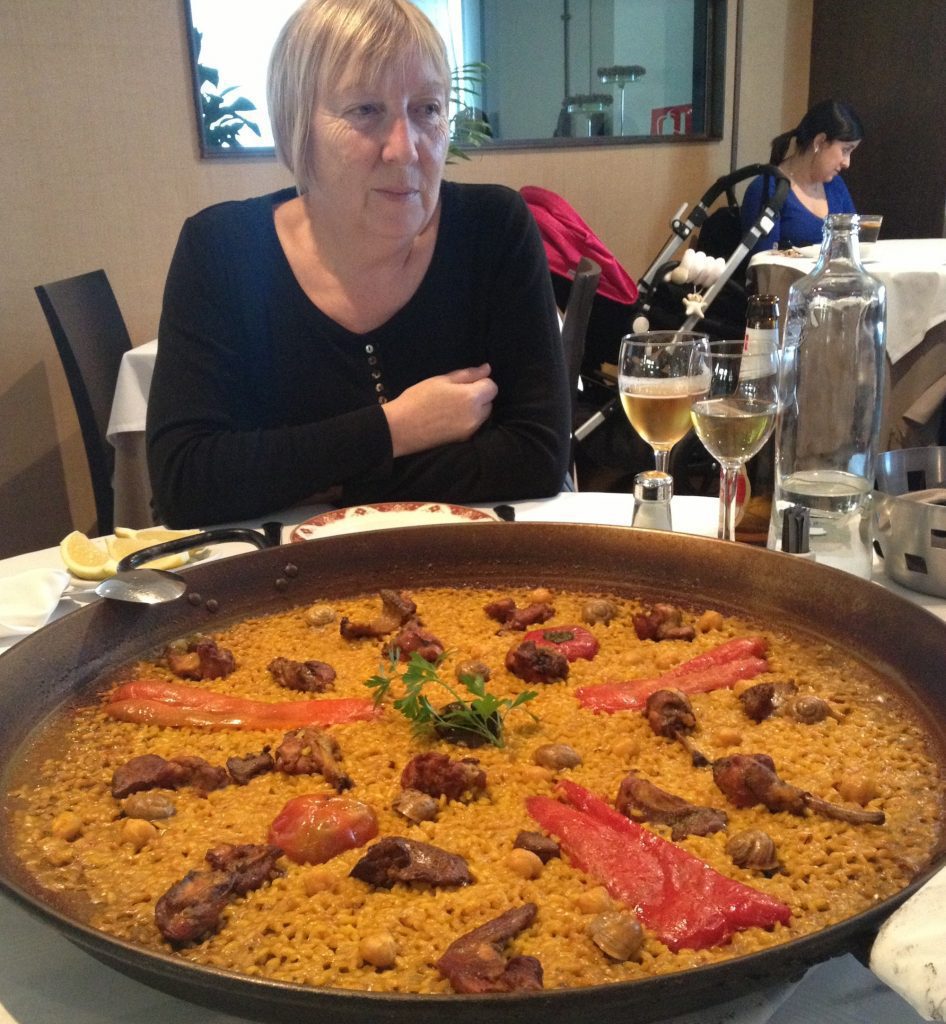
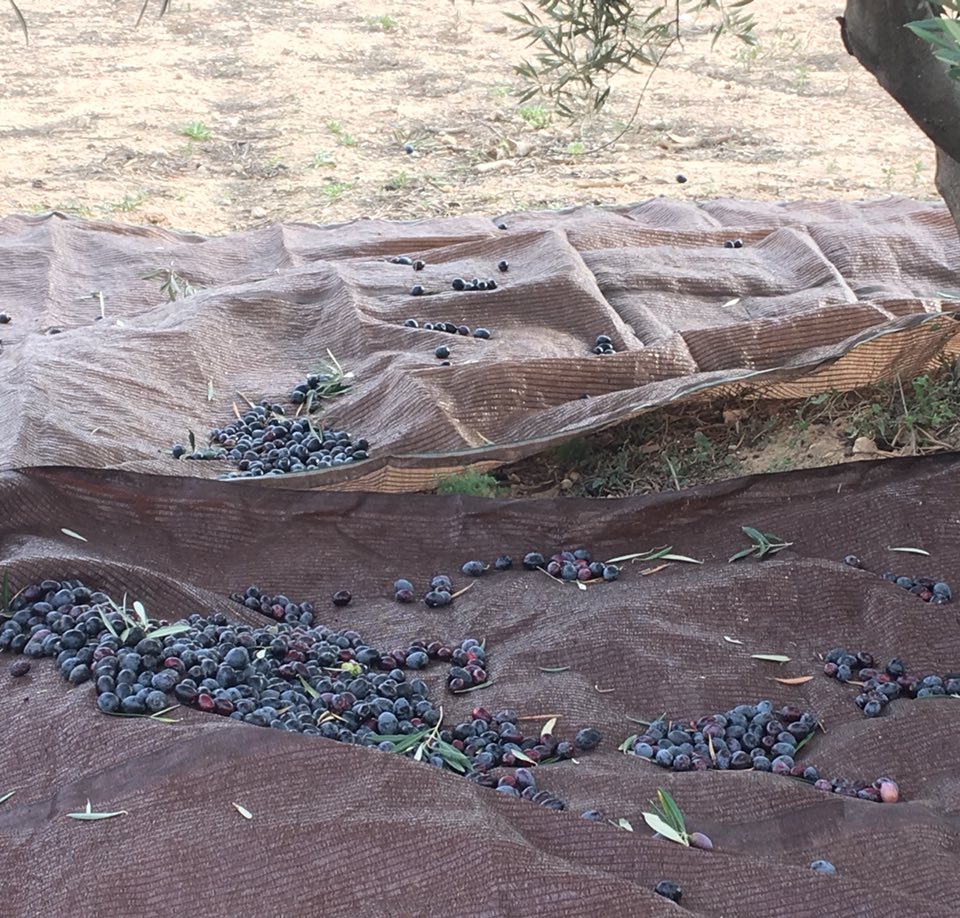
The “gastrobotanic” kitchen
Elche is the city of palm parks, a municipality where orchards, gastronomy and design go hand in hand. The modern and innovative growers and restaurant chefs work side by side. Check out the Huerto Gourmet food and their lemons containing a caviar-like pulp. The gastrobotanic cuisine focuses on traditional and local produce. The city and dates of Elche cultivation Elche is Europe’s “city of dadel”, with a significant production of dates. Creators in food and gastronomy constantly seek new recipes and products. Just growing is hard, today’s price competition is hard from North Africa, the Middle East and the United States.
Dadeln is a fruit that is found throughout Elche, town and municipality, with its amazing landscapes of palm parks. It is a historical legacy in the areas of the Costa Blanca where Arabs and Phoenicians settle down in the area around Elche. Dates are sold fresh October to January and the rest of the year frozen. Between September and January, pick the dates, press the link to see a movie about how it works. The most common way to buy dates is fresh, juicy, dry, pickled, frozen, dried and marinated. The pomegranate in Alicante is part of a long “fruit story”.
Already 5000 years ago, it was grown in parts of Asia and North Africa. In Alicante municipalities Elche, Albatera, Crevillente produce around 50 000 tonnes of pomegranates a year. This constitutes 90% of Spain’s total production It is a useful fruit, rich in C and E vitamins and have a significant amount of antioxidants.

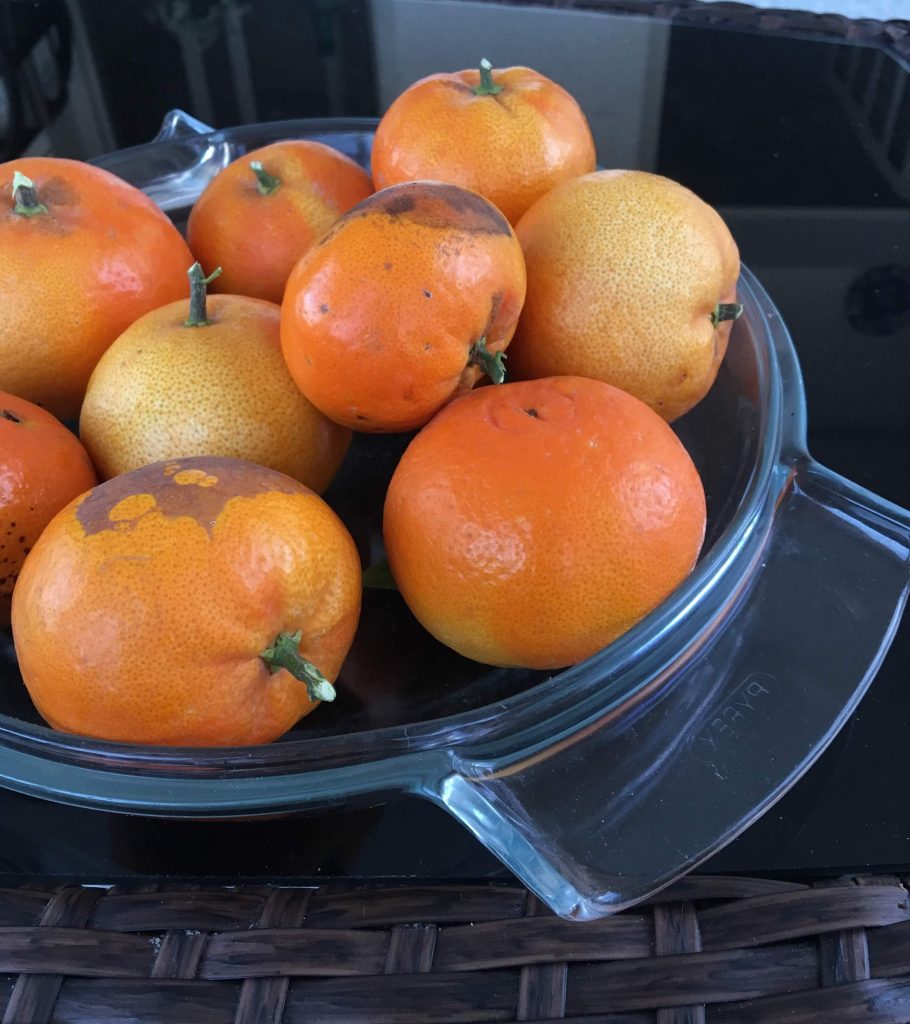
Pomegranate “Mollar de Elche”
In Elche, the so-called “Mollar de Elche” is protected, and according to proud local growers, it is extra sweet, you can eat the whole kernel and the color is yellow / beige. The fruit is picked between October and February. 60% of production is exported and 40% goes to domestic consumption. In Elche, chef competitions are being organized to develop new exciting recipes and uses for pomegranate in the Spanish cuisine.